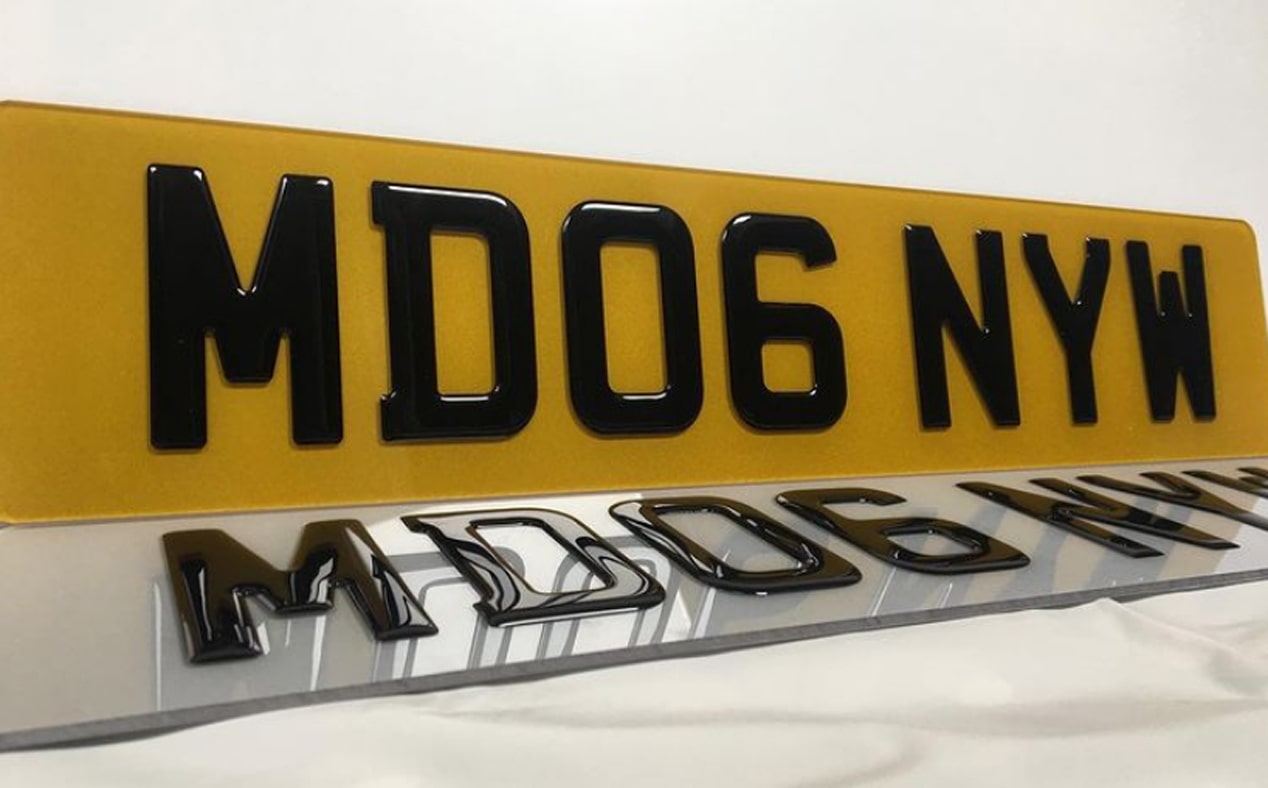Are Pressed Number Plates Legal?

What are Pressed Number Plates?
Pressed number plates in the UK are number plates comprised of metal, usually aluminium. They are made up of a different material to the acrylics used on modern vehicles, and have the characters that make up the registration itself raised off the background of the plate.
These are generally used for style purposes, with lots of road users preferring them over standard UK number plates. But are they legal?
Let's take a look.
Are Pressed Number Plates Legal in the UK?
Pressed number plates are legal in the UK, but only if the vehicle you're putting them on is of a certain age. Any vehicle registered after March 21st, 2001, must utilise the material of British Standard BS AU 145d. This is set to change in 2021 to British Standard BS AU 145e, a more durable material which will be standard from this day onwards.
DVLA guidelines and pressed number plates law states that the plates must be made of a reflective material, but not made to look reflective after production. The guidelines state that the material used must also be flexible but hard wearing, maintaining their original shape should there be light damage or bending of the plate.
Aluminium, and all other metals that can be used for press number plates in the UK, do not follow these guidelines. They do not maintain their shape if bent, and are not comprised of the necessary material stated in DVLA guidelines.
Pressed number plates are therefore illegal on vehicles registered after March 21st, 2001.
But what about classic, or vintage vehicles? Pre-2021, the rolling tax 40 year exemption rule set out that any vehicle registered on or before 1972 qualified as a vintage vehicle. These vintage vehicles originally came with aluminium registrations which had black backgrounds and white or silver characters, otherwise known as pressed number plates, meaning that pressed number plates were allowed.
This rule has now changed, and since January 1st, 2021, the age of the vehicle must be 1980 or older to qualify for vintage status and therefore be allowed to display metal number plates.
This means that any vehicle registered before 1980 is permitted to display pressed number plates, and this includes vehicles registered prior to 1950, too.
To summarise and answer the question of whether pressed number plates are legal. The answer is: it depends.
If your vehicle was registered before 1980, it is classed as a classic or vintage car which means you can display pressed, black and white or black and silver number plates.
If your vehicle was registered after 1980 however, pressed number plates are not legal in the UK.
See also...
- Famous Private Reg Plates
Find out what private plates the celebrities have branded their cars with
- Most Expensive Private Number Plates
Discover the UK's and the World's most expensive private plates
- Number Plate History
Learn all about the history of British number plates
- Home
Start here. Search for your ideal private number plate.
- How To Buy Private Number Plates
At Plate Master we make it easy for you to buy and assign your ideal personalised number plate. Let us do all the work!
- Sell your number plate
Convert your private number plate into cash. We may have a buyer waiting!
- Our Free Transfer Service
Buy a personalised number plate and take advantage of our free transfer service.
- Search Cherished Plate Stock
Looking for a prestige cherished number plate? Search our database of private stock.
- New DVLA 76 reg plates
Learn about the new DVLA 76 plates. We'll secure your 76 plate for you.
- Personalised Gift ideas
Looking for gift inspiration for a loved one? You don't have to own a vehicle to buy a personalised number plate!
- DVLA Number Plate Law
Learn about the rules of transferring, assigning and displaying DVLA registrations.
- Number plate news
Read the latest news in the world of personalised number plates. Also search our news archive.
- Most expensive number plates
Take a look at the most expensive private number plates ever sold. Maybe your DVLA reg is valuable.
- Celebrity number plates
What our famous folk brandish on their luxurious motors.
- Number plate prices
Ever wonder how personalised number plates are valued? Enrich your knowledge.
- Number plate history
From A 1 to YY76 ZZZ! Learn about the history of DVLA registrations.
- Learn about Private Number Plates
Why should you own a private plate? We'll tell you why!